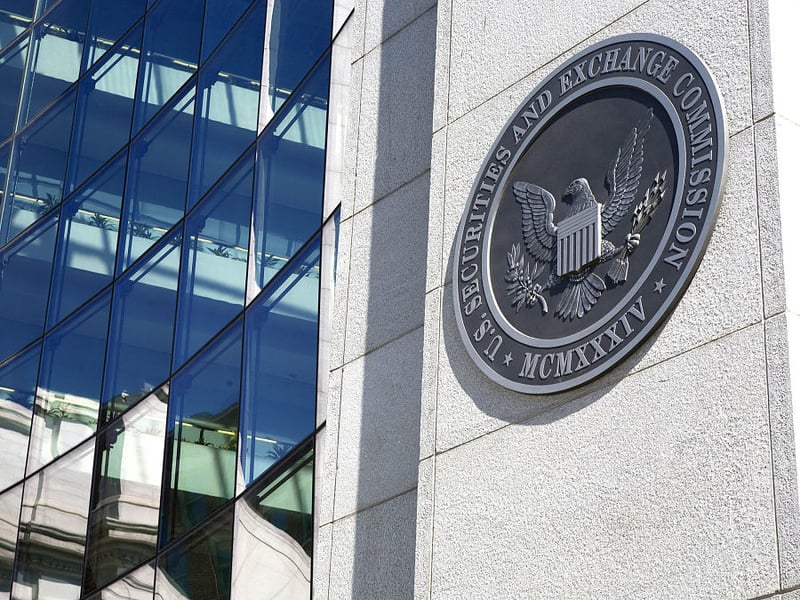

The Securities and Exchange Commission has started integrating members of the Department of Government Efficiency into its internal systems, marking the latest step in a broader federal initiative aimed at reducing agency spending and identifying inefficiencies.
According to an internal email reviewed by Reuters, SEC employees were told Friday that staff from the department – established earlier this year and backed by billionaire Elon Musk – would be granted certain access privileges within the agency, including to networks and IT systems. The communication indicated that the SEC was setting up a liaison team to coordinate directly with the department, known informally as DOGE.
“Our intent will be to partner with the DOGE representatives and cooperate with their request following normal processes for ethics requirements, IT security or system training, and establishing their need to know before granting access to restricted systems and data,” the email stated, according to Reuters.
A spokesperson for the SEC told the news outlet that the onboarding process was underway. A request for comment from the Department of Government Efficiency was not returned.
The SEC, which oversees over $100 trillion in US capital markets, maintains significant troves of confidential information, including company filings, enforcement investigations, and data from the Consolidated Audit Trail—a market surveillance system designed to track virtually all equity and options trades.
Staff were told that DOGE officials would primarily operate through the designated liaison team but may reach out to employees directly. In such instances, SEC personnel were instructed to respond “courteously,” while refraining from disclosing any material information without first consulting the liaison team.
DOGE's interactions with the SEC began as early as February, when anonymous sources leaked tips of impending plans to review the agency's operations as part of a broader White House-directed initiative to rein in federal spending. At the time, unnamed officials described DOGE as being “at the gates” of the agency.
Around that time, lawmakers. Rep. Maxine Waters and Rep. Brad Sherman warned Acting SEC Chair Mark Uyeda in a joint letter that extending system access to Musk’s team could put sensitive financial information at risk.
“Surrendering these data and information systems to the world’s richest man, who has already demonstrated his disregard for the rule of law, would have devastating consequences on the integrity and safety of American markets,” the lawmakers wrote.
Later in February, the SEC informed leaders at its 10 regional offices that their positions could be eliminated as part of a cost-cutting proposal developed in coordination with the Department of Government Efficiency. The plan, which still required formal commission approval, would remove senior roles that have traditionally guided the agency’s enforcement and examination priorities.
“The regional leadership is what the home office has always looked to for making decisions about enforcement cases and exams,” Andrew M. Calamari, partner at Finn Dixon & Herling and former head of the SEC’s New York office, told Reuters.
The intervening weeks have seen more headlines of workforce reductions at the federal agency. In the latest development, up to 700 staffers are reportedly planning to depart, including more than 150 in the enforcement division, as hundreds of unnerved employees accept voluntary buyouts and resignation offers from the Trump administration.

Rajesh Markan earlier this year pleaded guilty to one count of criminal fraud related to his sale of fake investments to 10 clients totaling $2.9 million.

From building trust to steering through emotions and responding to client challenges, new advisors need human skills to shape the future of the advice industry.

"The outcome is correct, but it's disappointing that FINRA had ample opportunity to investigate the merits of clients' allegations in these claims, including the testimony in the three investor arbitrations with hearings," Jeff Erez, a plaintiff's attorney representing a large portion of the Stifel clients, said.

Chair also praised the passage of stablecoin legislation this week.

Maridea Wealth Management's deal in Chicago, Illinois is its first after securing a strategic investment in April.
Orion's Tom Wilson on delivering coordinated, high-touch service in a world where returns alone no longer set you apart.
Barely a decade old, registered index-linked annuities have quickly surged in popularity, thanks to their unique blend of protection and growth potential—an appealing option for investors looking to chart a steadier course through today's choppy market waters, says Myles Lambert, Brighthouse Financial.
